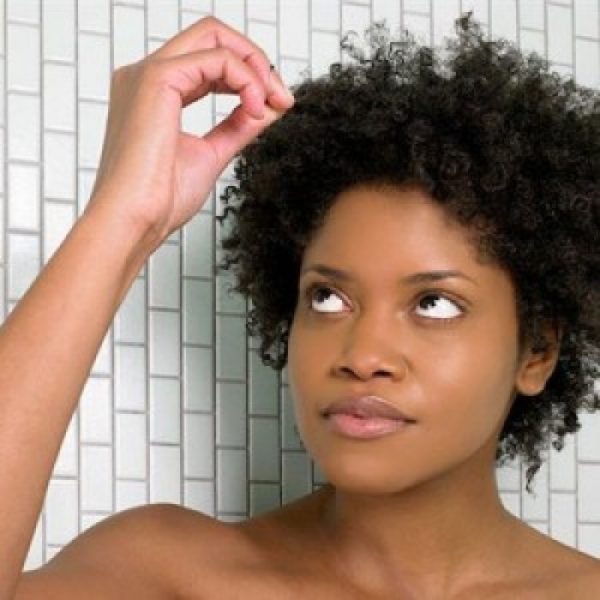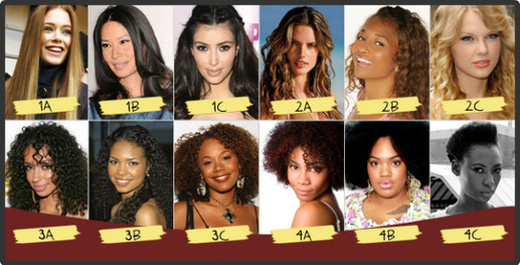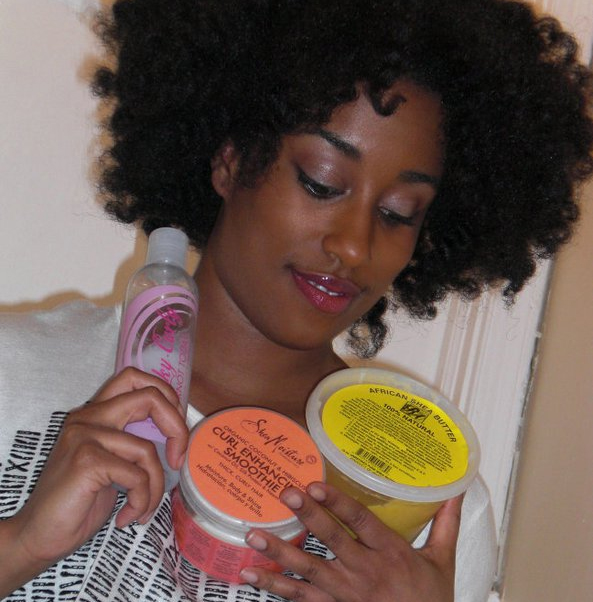What Does Being Natural Mean?
The growing number of Black women transitioning from chemically relaxed to natural hair styles has inspired a strong sisterhood within the hair care community. Yet it has also spawned divisions between wearers of relaxed hair vs. natural and has led to a debate among over what it means to be natural.
Some natural hair advocates believe that natural hair refers to texture, not color or length, and as long as the chemical structure of the hair is unaltered, it can be considered natural. Supporters of this argument would likely consider commercial hair products, wigs, weaves, and even hair straightening with a hot comb, acceptable hair care options that fall under the natural-hair umbrella.
Others argue that the natural hair movement is a celebration of Black women’s beauty, hair textures and hairstyles, and so wigs, weaves, hair coloring, extensions, or using a flat iron do not constitute being natural.
The Black Hair Agenda
Because of the historic devaluation of coily hair and the association of hairstyles such as Afros and dreadlocks with revolutionary thinking and militancy, Black hair has strong political implications. There are some within the natural hair movement who believe that Black women should embrace the political element and reject European standards of beauty.
Others choose to focus on individual expression and argue that whether Black hair is worn kinky, curly or straight, or with wigs or weaves, the hair style doesn’t automatically determine if the wearer is self-loving or self-loathing.
Cassandra Jackson, professor of English at The College of New Jersey, in a 2012 Huffington Postarticle, Is Natural Hair the End of Black Beauty Culture?, wrote: ”While Black hair certainly has political implications, the constant refrain of the current natural hair movement is self-acceptance, freedom, health, and spiritual growth.”
Hair Typing
Andre Walker, an Emmy-Award winning stylist best known for his work with Oprah Winfrey, created a hair chart that would become the base for how most women of color identify their hair textures. Walker’s hair chart has four variations of texture from straight to kinky, Type 1 through 4.
This chart is often used in the Black hair community today to determine hair-care regimens. However, as the natural hair community grows, a debate has sprung up over the usefulness of hair typing and what purpose it really serves.
Some feel there’s more to hair than texture and curl pattern, and that hair typing and the chart are divisive tools that provide little information and easily misguide women on hair care.
Imani Dawson, founder of TribeCalledCurl, notes:
“Hair typing as it exists today is divisive and ultimately destructive because it emphasizes one “type” of curl texture over another. It also provides limited information; just because your hair looks like someone else’s doesn’t mean it’ll respond to products similarly. Here are some important factors that the current hair system doesn’t take into account: porosity, strand size, and density. Curl pattern is the LEAST helpful in terms of caring for your natural hair, and figuring out which products work best.”
DIY vs. Natural vs. Chemical Hair Products
Many in the natural hair community wrestle with whether to use all-natural (organic) products, not-so-natural (commercial/chemical) products, or to make their own (DIY) products for their hair.
Those who believe the movement is more than just abandoning chemically straightened hair, argue that everything that touches the hair should be 100 percent natural, including the shampoos, conditioners, moisturizers and even hair coloring. The benefits are that the environmental impact and exposure to the potentially harmful chemicals used in commercial personal-care products are minimized.
On the other hand, others advance the idea that the price of organic products and DIY ingredients and the buildup in hair do not justify ditching commercial products.
Is the Debate Necessary?
Another argument emerging from the natural hair debates is over whether or not the debate itself does more harm than good.
Many of the women involved appreciate the debate because it helps women learn and educate themselves on the various aspects of the movement.
Others argue that the debate is not fruitful and that the focus should be on the important cultural change in attitudes toward Black hair, something Black woman on all sides can appreciate.
Clutch magazine writer, Shahida Muhammad, asserts, “Instead of debating on what’s better, let’s applaud the fact that we now have options in hair care that will inspire the next generations of Black girls to embrace their hair in ways that suit their preferences, and not imposed social ideals.”
A Curlcentric.com guest writer’s article titled, I Hate the Natural Hair Movement, reads:
“The elitist feeling that is growing with the natural hair movement is just another way for us to divide. It smacks of all of the superficial marks of superiority we have lived by for so long. Light skin, dark skin, good hair, bad hair and now natural or relaxed hair. Enough already. We need to stop finding ways to exclude each other and work to be a stronger more prosperous Black community no matter how we look.”
Have a Good Hair Day and remember to Love Your Hair!!!







1 comments
Very ibteresting and well Written article! I Want to put in a little objection. You write about European standards. I live in Europe and i must say the standards you talk about i ve only heard about from americans. We dont have any hair standards in Europe. The hairtypes in Spain, Greece, Sweden, Ukraina, Irland, cyprus etc vary from ultra blond to pitch black, from bone straight to tight curs. From thick to thin. so when you talk about European standard, do you mean black curly Greek hair or blond straight Scandinavian hair? Or Brown frizzy german hair? Cos those are the only standards i can think of and yet they dont exist because there are blond germans and black haired scandinavian :)
ReplyDeleteI think the problems might be more about american standards rather than European standards.
Leave a comment and show some love!